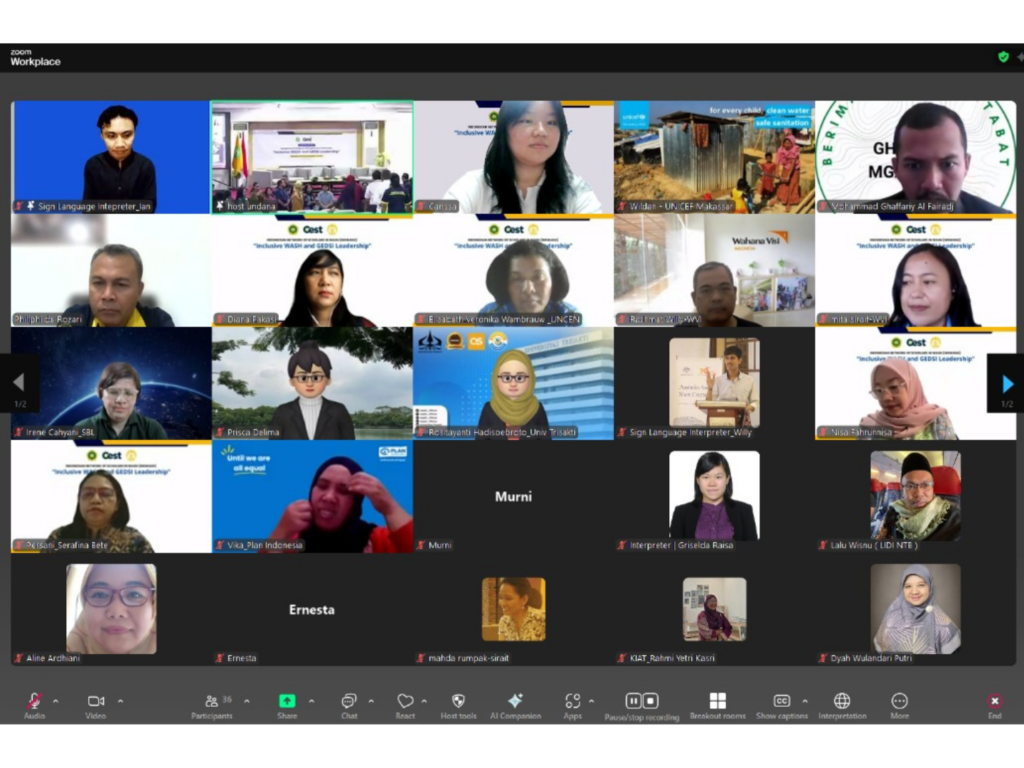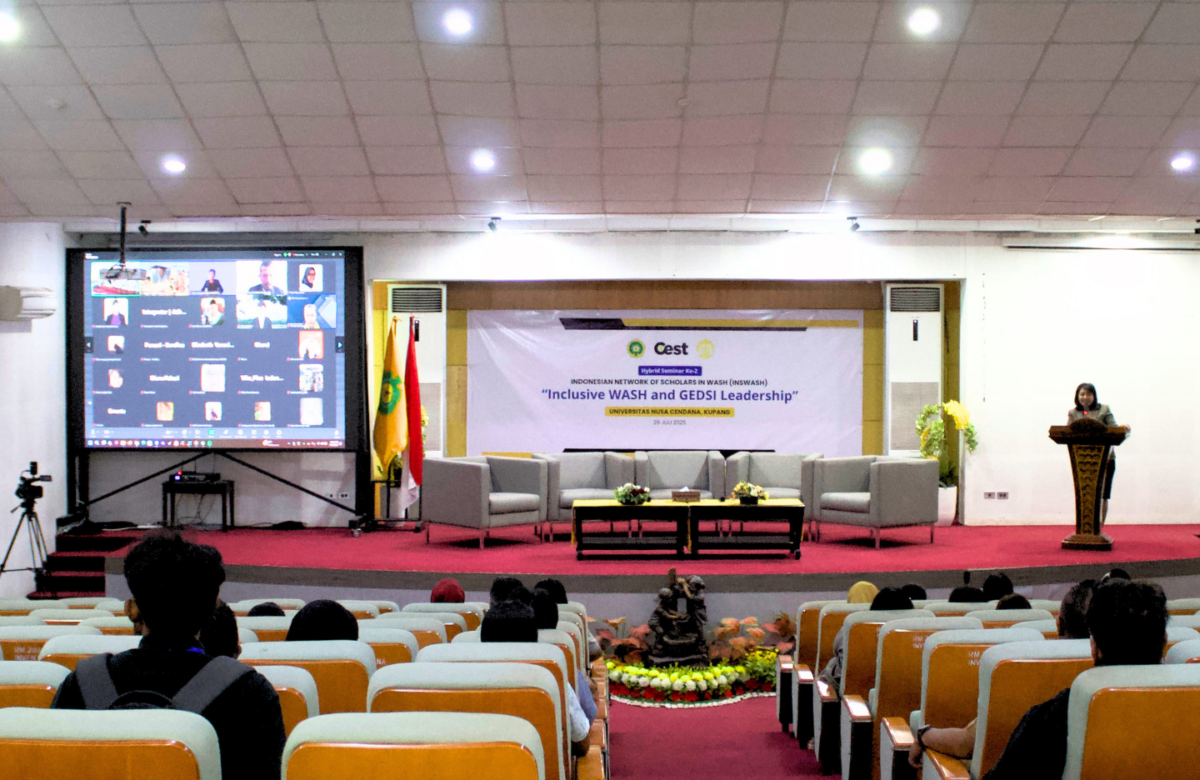Voicing Eastern Indonesia for Inclusive Water and Sanitation Solutions (INSWASH)
The quiet city of Kupang buzzed with energy as dozens of people filled the Rectorate Theatre of Nusa Cendana University (UNDANA), while many others tuned in online for a seminar as it was a hybrid event. This wasn’t just another academic event—it was a call to action. The 2nd event of Indonesian Network of Scholars in WASH (INSWASH) hybrid seminar took place under the theme: “Inclusive WASH and GEDSI Leadership”, placing the spotlight on where it is needed the most.
The goal? To challenge how we think about water, sanitation, and hygiene (WASH)—not just as technical issues, but as deeply social ones that touch gender, inclusivity, and inequality.
Unlike most conferences where the discussion stays in lecture halls and theory, this seminar was rooted in lived experience. Women, people with disabilities, and representatives from marginalized communities shared the stage, weaving personal stories with research and on-the-ground innovation.
In his opening remarks, Prof. Philiphi de Rozari, Dean of UNDANA’s Faculty of Science and Technology, didn’t sugar-coat the situation: “Kupang doesn’t have a centralized wastewater treatment system. Over 75% of domestic wastewater flows untreated into surface drains.” It’s a stark reminder that WASH challenges here are urgent—and deeply linked to public health and development.
What’s the fix? According to him, it’s not just about infrastructure. “We need political will, regulation, inter-agency coordination, and skilled human resources,” he said.
Charles Conrad Rambung from NTT’s regional planning agency (Bappeda) added another dimension: the fight against stunting and poverty requires a WASH lens. “We’ve shifted how we see people with disabilities—not as passive aid recipients, but as active contributors,” he explained, highlighting initiatives like Inclusive Planning Forums (MUSIK KEREN) that give vulnerable groups a voice in local policymaking.
These were key insight to how we can look at NTT’s WASH problems and spot on solutions for them.
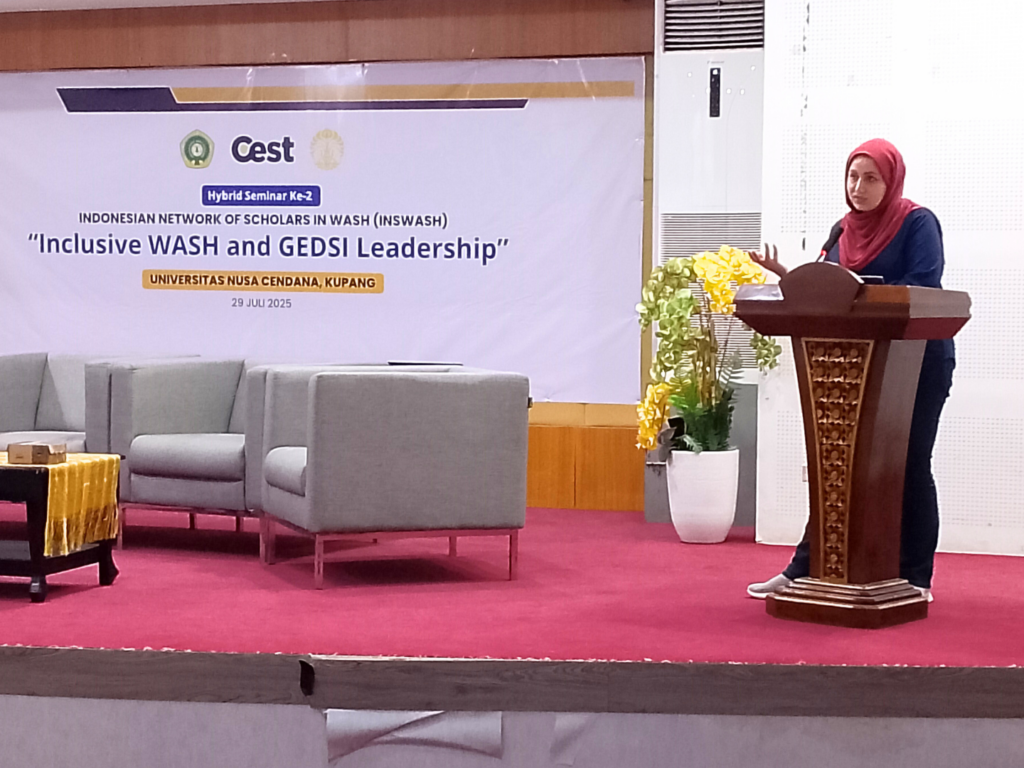
Stories from the Frontlines
Voicing the gender and inclusive perspectives was the Research Storyteller segment where academics and field workers shared research rooted in community insight.
- Dr. Diana Pakasi (Universitas Indonesia) explored gender dynamics in water collection, finding that women prioritized water taste and quality, while men focused on cost and efficiency—an insight with real implications for program design.
- Dr. Elisabeth Wambrauw (Universitas Cendrawasih) introduced Tonotwiyat, a “women’s forest” in Papua where only women may enter to forage. It’s more than tradition—it’s a multigenerational water conservation system built on Indigenous knowledge.
- Safaa Aldirawi (University of Technology Sydney) reminded everyone that the failure in WASH systems isn’t just physical. “It’s not just broken water towers—it’s a system that was never designed to last,” she said, calling for solutions driven from the grassroots up, not policy down.
- Ir. Ben Vasco Tarigan (UNDANA) emphasized the need to tailor technology to context. His solar-powered desalination project only produces five litres of water a day—but for remote coastal communities, every drop matters.

Eastern Indonesia Spotlight: Leading with Local Wisdom
Understanding the urgency to WASH, especially in Eastern Indonesia, INSWASH gathered scholars and practitioners to tell their stories and experiences in working with WASH issues, especially related to gender and inclusivity. Summaries include:
- Mita Sirait (Wahana Visi Indonesia) called for ending the silence around menstrual health in schools. “Menstruation management shouldn’t be taboo. Boys and girls both need to understand reproductive health,” she said firmly.
- Fahrunisa (Sumbawa University of Technology) shared how her community created an Integrated Water Resource Management Forum. But, she pointed out, “Gender equality and social inclusion (GEDSI) still aren’t fully recognized or funded, despite being vital for climate adaptation.”
- Pdt. Paoina Bara Pa (Eastern Indonesia Women’s Network) brought the environmental crisis into focus. “In 60 years, drought patterns in East Nusa Tenggara haven’t improved—they’ve worsened,” she said. The church now promotes “planting water” techniques and supports safe houses for trafficking survivors.
- Serafina Bete (PERSANI NTT), representing persons with disabilities, stressed that “if your program doesn’t reach everyone, it isn’t inclusive.” She highlighted how participatory research builds both trust and community confidence.
The Q&A brought sharp questions and deeper reflection. Participants questioned national policies that encourage environmentally harmful practices like large-scale monoculture plantations in Papua. “Sometimes modern development destroys more than it builds,” admitted Dr. Wambrauw, herself a technician re-learning Indigenous approaches.
Closing into the session, moderator Dr. Ni Made Utami Dwipayanti (Universitas Udayana) summarized the shared lessons: “We’ve seen how climate change and inequality hit marginalized communities the hardest—but we’ve also seen how innovation and inclusive thinking can drive real transformation.”
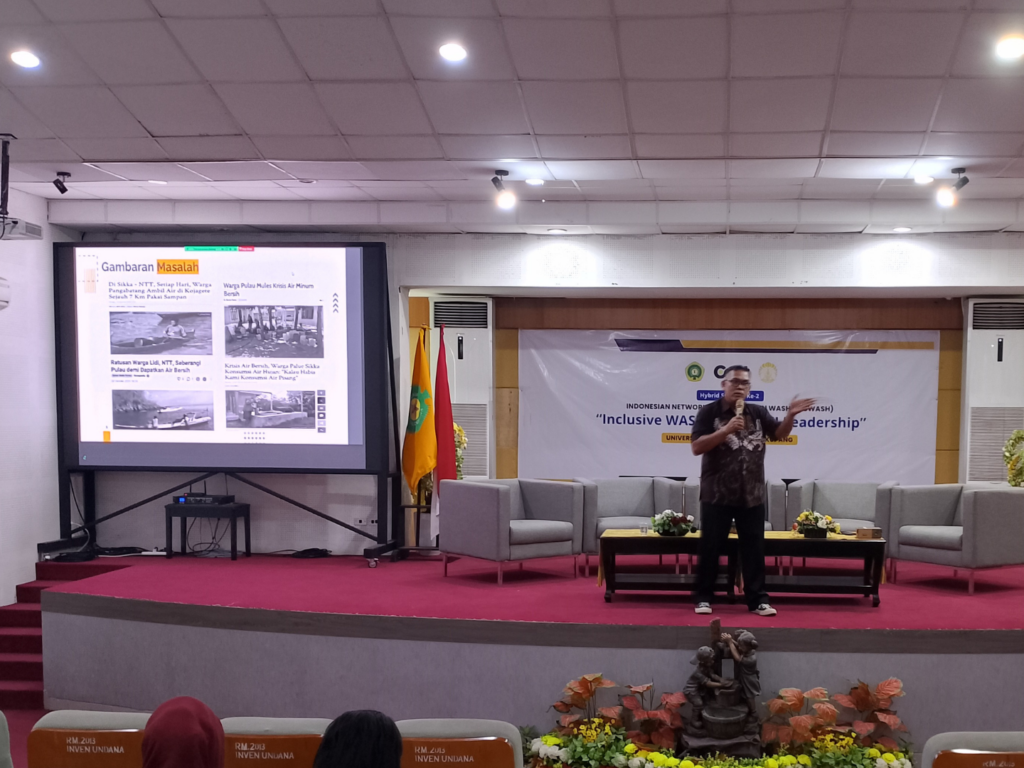
This wasn’t just about water
If the seminar in Kupang made one thing clear, it’s this: sustainable development in Indonesia is unlikely top down. It will be built from local stories, from community wisdom, and from voices that refuse to be silenced. INSWASH is a vessel for these voices to be heard.
Sign language interpreters and bilingual (Indonesian-English) interpretation ensured accessibility for all participants, a reflection of the seminar’s core commitment.
The seminar was supported by the Australian Alumni Grant Scheme through Dr. Cindy Rianti Priadi of Universitas Indonesia, in collaboration with UNDANA, FTUI, the Collective for Climate, Environment, and Sustainability (CEST.or.id), and INSWASH.
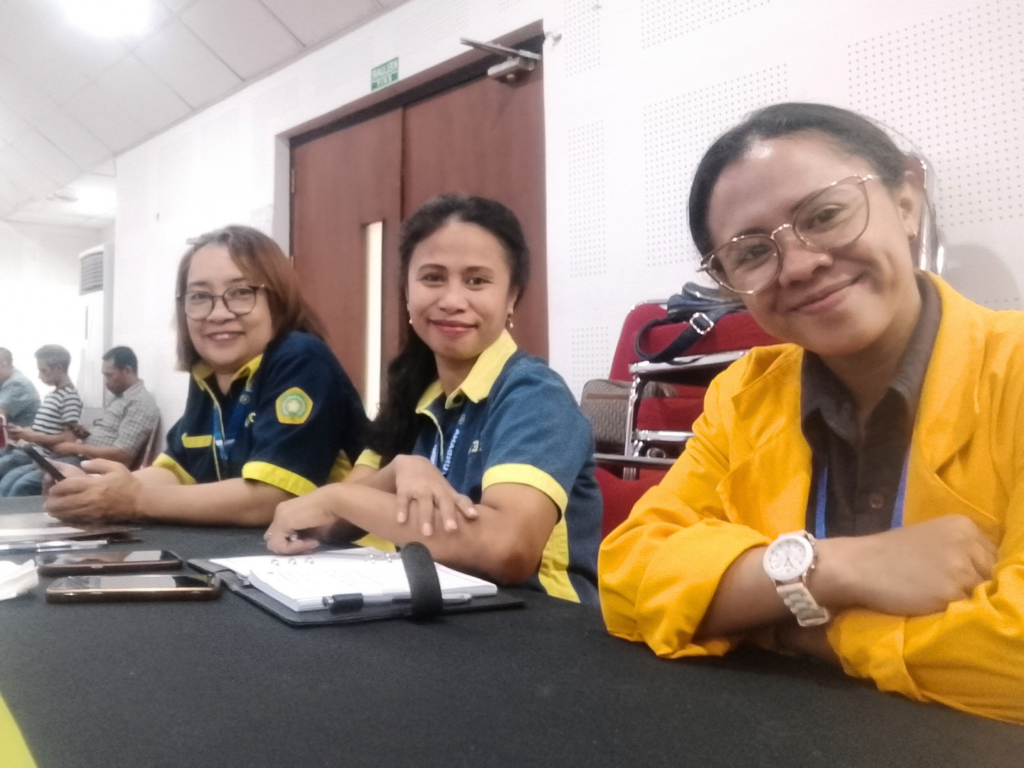
INSWASH: A Network for Change
INSWASH is a growing movement of Indonesian scholars and professionals pushing for inclusive, cross-disciplinary WASH research that drives policy impact. The network aims to be a collaborative space that uplifts marginalized voices, connects research with field realities, and promotes long-term solutions.
Those interested in joining can still register at bit.ly/INSWASH-2, where they’ll be invited to contribute to ongoing discussions and research collaborations.
Berita terikait:
